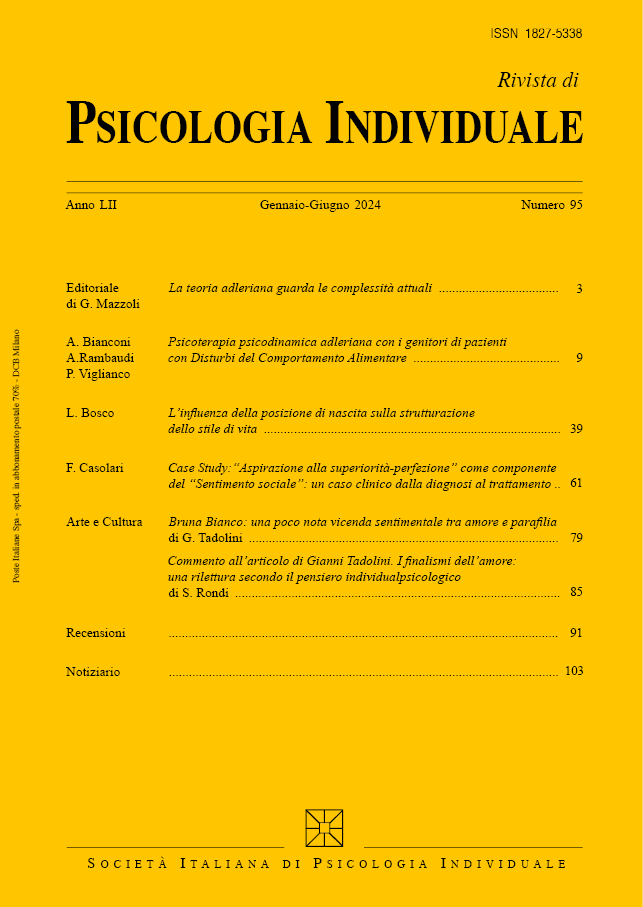Psicologia Individuale comparata e terapia psicomotoria: un approccio reale al servizio del bambino
Parole chiave:
approccio psicomotorio, mente, corpo, psicoterapia dell'infanzia, bambino, infanzia, disturbi del neurosviluppo, autismo, psicosi, emozioni, psicologia individuale, alfred adlerAbstract
Questo contributo esplora l'approccio terapeutico psicomotorio, fondato sulla psicologia individuale di Alfred Adler, come trattamento per bambini con disturbi relazionali precoci, come autismo e psicosi. Tale approccio si distingue da altre tecniche in quanto agisce sulla relazione mente-corpo, privilegiando l'espressività psicomotoria come linguaggio del bambino, ponendo l’accento sulla possibilità di "leggere" il corpo quale espressione dello stile di vita, in un'articolazione inscindibile di atteggiamenti, sentimenti ed emozioni. Questo approccio è indicato per bambini con difficoltà di simbolizzazione e comunicazione e si concentra sui primi anni di vita, quando si forma lo "stile di vita" del bambino, lavorando a livello arcaico per ristrutturare la personalità e favorire la separazione madre-bambino, un aspetto fondamentale per lo sviluppo del senso del Sé. Attraverso il movimento, il corpo del bambino diventa il mezzo per ripristinare il piacere di sentire, agire e muoversi per costruire nuovi canali di comunicazione. Un esempio concreto mostra come il lavoro terapeutico con una bambina autistica permetta progressi nel riconoscimento della sua immagine e nel superamento dell'isolamento






